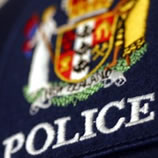Source: New Zealand Police (District News)
Police accept the findings of a report by the Independent Police Conduct Authority (IPCA) relating to photographs taken at a checkpoint in Northland.
On November 16, 2019, Police set up a checkpoint down the road from a fight night event in Ruakaka which was run by a gang member and expected to have a significant number of patched gang members and associates in attendance.
The checkpoint resulted in vehicles being checked for road-worthiness and drivers breath-tested and being asked to produce their licence.
Those suspected of attending the fight night or suspected of having gang associations were asked to pull over to the side of the road so Police could record intelligence information about the occupants.
The IPCA has found that the initial checkpoint was lawful under the Land Transport Act.
The IPCA has also looked into a complaint from a woman who was attending the fight night event and was asked to pull over, with occupants in the vehicle having their photograph taken by Police.
The authority has found the woman was unlawfully detained at the point where she was asked to pull over on the side of the road for intelligence purposes. It also found that by photographing the woman and her partner, Police were in breach of the Privacy Act.
The woman also claimed that she believed the event attendees were racially targeted. This is strongly refuted by Police who maintain those attending the event were targeted because it was believed most of those attending were likely gang members or associates. The IPCA also found no evidence of race being a factor in the planning and execution of this operation.
Superintendent Tony Hill, Northland District Commander, says Police accept the IPCA’s findings, with an internal review of the operation determining that photographing these individuals did not comply with the powers available under the Privacy Act or Land Transport Act.
“We have reviewed this event and have identified a number of learnings. We have provided additional communication and advice to our staff to ensure they understand their obligations under these Acts when carrying out checkpoint operations.
“I would also like to acknowledge however that the intent of the staff was positive and their aim was to gather intelligence around members of organised crime groups.
“In future operations our staff will have clearer guidelines to ensure that all actions are lawfully executed under the Land Transport Act.”
Police have apologised to the woman involved and the photographs have been destroyed.
Nationally, Police are currently reviewing its “collection of information, its storage and management to ensure it is appropriate”.
There is also a separate review being undertaken in regards to Police policy, practice and procedure that specifically relates to the way Police obtain, use and store photographs of young people and adults.
These reviews will be cognisant of the balance Police maintains between intelligence collection in the interests of crime prevention, investigations, public safety and the implications for privacy.
The IPCA and the Office of the Privacy Commissioner are also reviewing the Police practices of photographing individuals.
ENDS
Nick Baker/NZ Police



